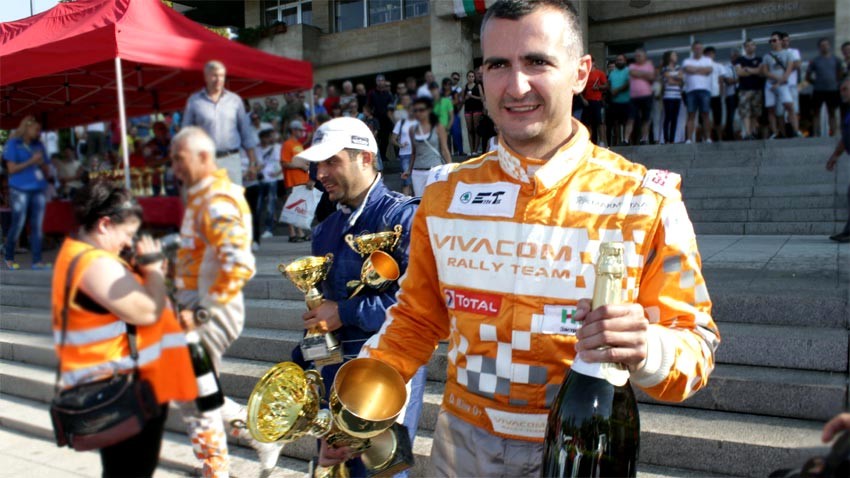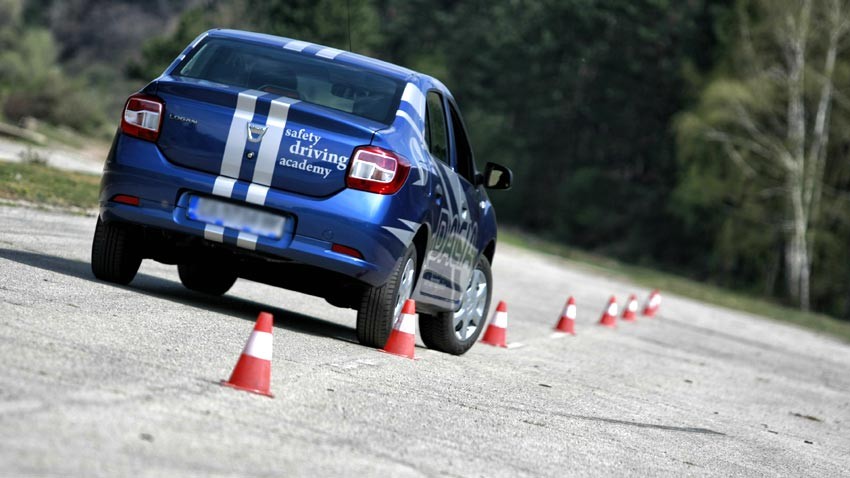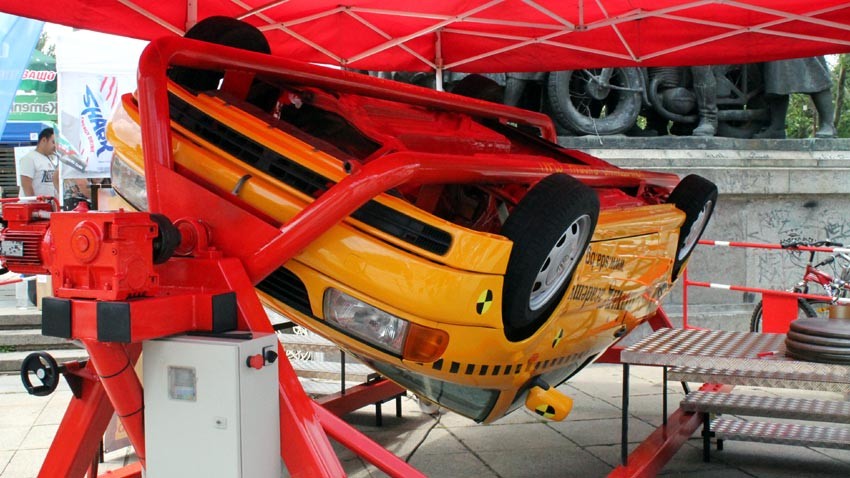Dimitar Iliev says he is a happy person, because he managed to fulfil his child dream to become a racer. He is true to the principle that it is always better to quit while you are on the top. In 2013 the eight-time Rally champion of Bulgaria put an end to his twenty-year-long sports career and took up the difficult task of teaching. Dimitar does not only hand down his knowledge and skills to the students at the National Sports Academy, but also tries to teach the young people how to behave both on the road and in life.
I myself try to serve as an example when I drive. Like any other sport discipline the auto racing requires a lot of sacrifice, efforts, dedication and deprivations. However, I always do the things that bring me biggest pleasure. I things this is very important and would advise the young people to always look for the job that will satisfy them and bring them pleasure.

Dimitar Iliev contends that the bad roads, the dangerous road sections and the imperfection of the Road Traffic Act are not the greatest dangers. The human factor plays the main role when we are on the road.
I don’t know why we don’t talk enough about the human factor. We are the ones who make the mistakes on the road. The environment becomes more hostile and the requirements towards the future drivers are reduced. We learn our lesson when a severe accident occurs on the road. That is why it is much better to focus on prevention and make people realize that driving is a very responsible activity.
Dimitar Iliev accentuated on a very worrying trend that reached epidemic levels in Bulgaria and in the rest of the countries worldwide. The authorities are yet to fight this new trend.
The use of mobile phones is the biggest problem and the main threat to road safety. People think it is not a problem for them to drive and talk on the phone or write messages at the same time. However, the road situation suddenly changes and we cannot react adequately, because we look in our phones and as a result we are involved in a car accident. This is quite worrying, because sometimes even innocent people pay the price.

The Bulgarian drivers do not have good driving culture, Dimitar Iliev went on to say:
We should talk about our culture as a whole, before we start talking about driving culture, because our culture and mentality are directly connected with the way we drive our vehicles. I my view, the next generation of drivers will have even a worse driving culture, because these children grew up in times of impunity and they were not taught to obey the law. Later, another generation will come. It will be better behaved, because the children are now growing up in a different European-like environment and then things will turn back to normal.
We must develop the qualities and the skills of the Bulgarian drivers in order to improve the situation, Dimitar Iliev says. This is what Dimitar teaches the drivers at his Safety Driving Academy which was unveiled in 2008. The motto of the academy is Safety Can Be Acquired!

We opened this academy, in order to teach the ones who have driving licenses gain better driving skills, acquire better instincts and learn how to react in critical situations. The human factor is involved in 99% of all road accidents.
What people should know before they sit behind the steering wheel?

People must know that they bear the responsibility. They should also know that terrorists started to use the vehicles as weapons and if they use their phones when driving they can involuntarily become terrorists and will have to live with this thought later. Drivers must always improve, because having a driving license does not mean they can drive. People should not think they are good drivers, because excessive self-confidence is not good at all. We should not forget that no one is perfect. Everyone makes mistakes, but we must try to reduce these mistakes to the minimum.
English version: Kostadin Atanasov
Photos: courtesy of Dimitar Iliev and BGNESAn innovation for the treatment of diabetic foot ulcer using the patient's own tissue and artificial intelligence has been implemented at the University Multi-profile Hospital for Active Treatment-Burgas. Bulgaria is the fourth European country to start..
Over 3.5 million Ukrainians have arrived in or passed through Bulgaria since the beginning of the war. Nearly 200,000 people have found temporary shelter in the country, announced Anna Tertychna from the Ukrainian Embassy in Bulgaria. She..
At the Bulgarian Embassy in London, Prof. Bettany Hughes presented excerpts from the new BBC series - Wonders of Bulgaria. Prof. Bettany Hughes is the author of two episodes of the documentary. Hughes is a historian, writer, author of..
The making of knitted products is a traditional craft that deserves a revival and a new life, believes Alexandrina Pandurska, known for her numerous..

+359 2 9336 661
